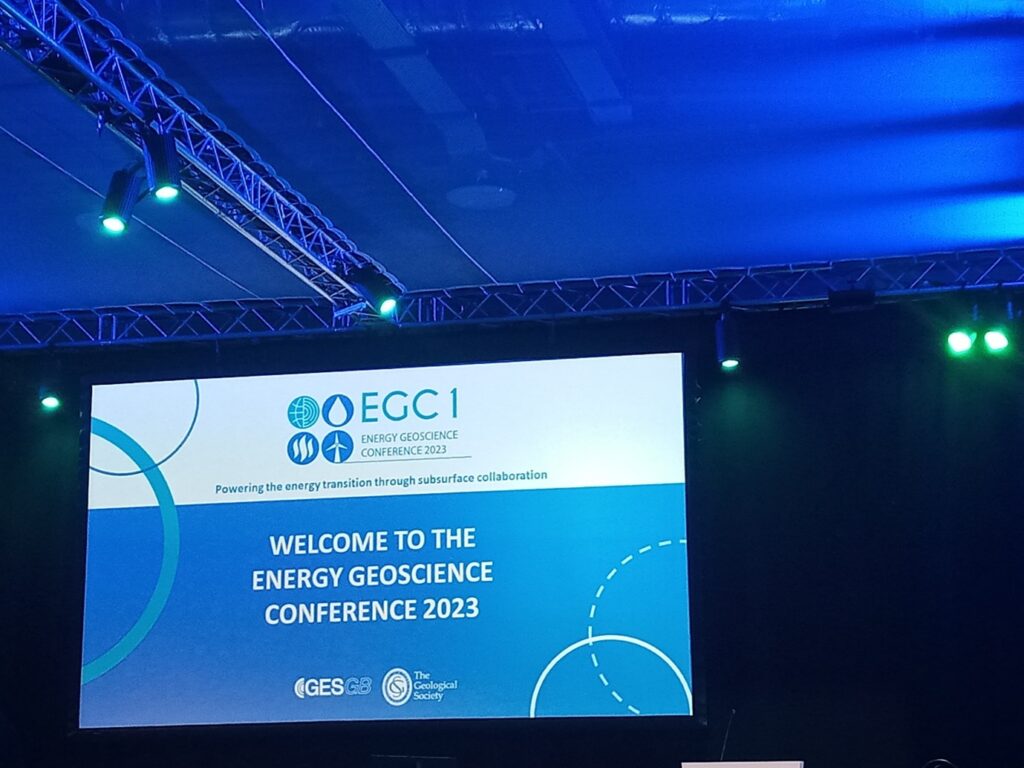The Geoscience Energy Society of Great Britain and The Geological Society co-hosted the first UK energy geoscience conference in Aberdeen between 16 – 18 May 2023. The conference focuses on the roles of geology and geophysics in the low-carbon energy transition. I had high hopes for the conference when I saw it in one of the Geological Society’s emails. It promises engaging discussions on energy transition intertwined with the industry, government and academia.

The three-day conference started with opening remarks by the conference chair- Graham Goffey. He discussed the need for the 1st energy geoscience conference (EGC1) at this time, how it came to reality and why Aberdeen was the perfect place for the conference – the energy capital of the UK and Europe. Technical oral sessions on emerging geothermal, geoscience in carbon capture, usage and storage (CCUS), exploration in the energy transition, Subsurface Modelling For Energy Projects, Geophysics and Geoscience for Energy Developments, Fault and Fracture Characterisation for the Energy Transition were held. Some of these oral technical sessions included panel discussions on net zero challenges. For example, on the first day, the panel session focused on why communication science in this century is difficult. As a young scientist, I found it very intriguing; it exposed me to the intricacies required to communicate science to the public.

In addition to the technical oral sessions, there were poster views and networking opportunities. Most of the poster views are related to themes of the oral technical sessions and offer more interactions. At one of the poster stands, I met a PhD student at the University of Manchester working on the type of geothermal energy I am researching for my PhD – aquifer thermal storage (ATES) system, and we promised to keep in touch with each other. Also, I discussed my intention to intern at the UK Geoenergy Observatory, Cheshire (under construction), at the British Geological Survey exhibition stand.
In the conference’s last session, the Director of the British Geological Survey – Dr Karen Hanghøj, emphasised that the path to energy transition revolves around rocks. Also, she explained the UK’s energy transition plans and publications the agency has published on these. The event ended with awards for the best oral and poster presentations and closing remarks, promising a better 2nd Energy Geoscience Conference (EGC2) in 2024. I look forward to presenting a part of my PhD at the EGC2. Thanks to QUADRAT DTP for funding my doctoral training at Queen’s University Belfast.





















































